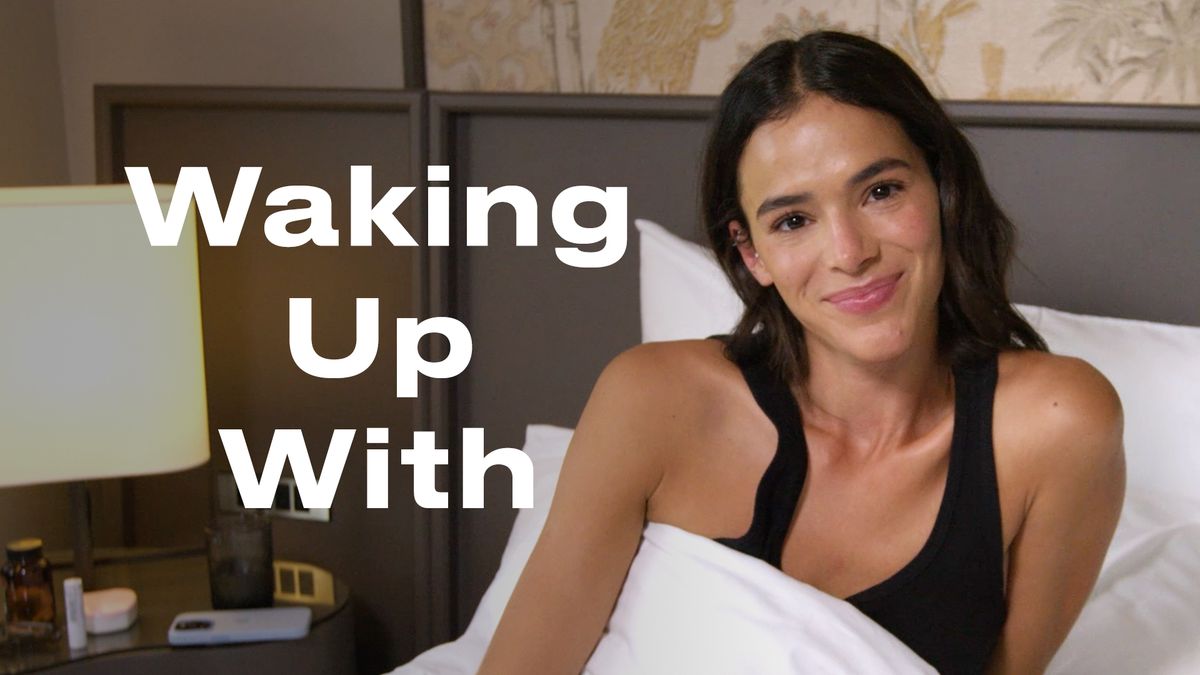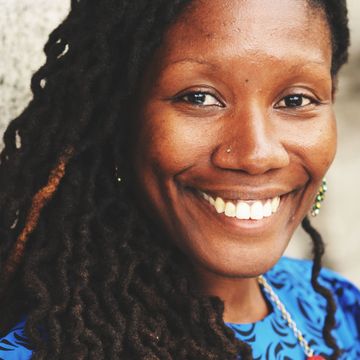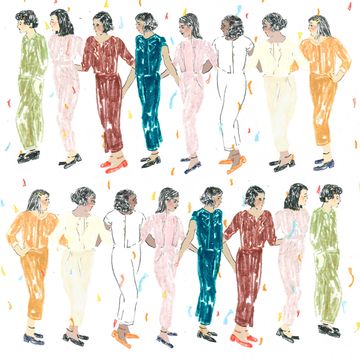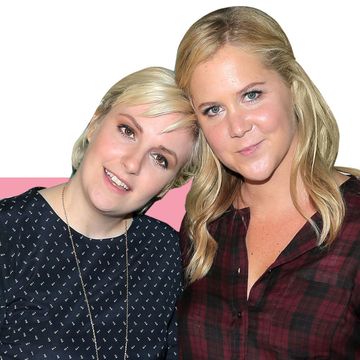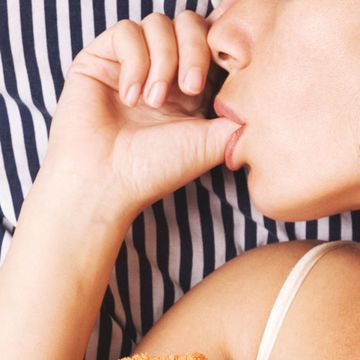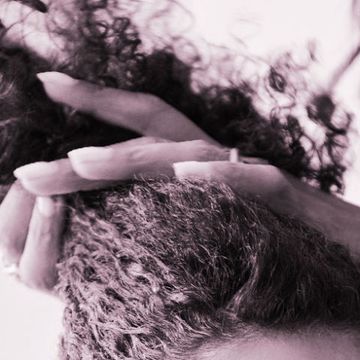This is from the debut issue of Lenny: Feminism, style, health, politics, friendship, and everything else from Lena Dunham and Jenni Konner. Like it? Share it with a friend.
In Rumors I Heard About My Body, Lenny teamed up with Planned Parenthood to answer questions about women's health.
Q: How do I know if my period is weird?
A: During some desultory middle-school health class in a room with linoleum floors, you probably learned that your menstrual cycle is 28 days long. Day one is the first day of your period, then the body prepares for ovulation by growing the endometrial lining in your uterus. Around day 14, you ovulate, and if the egg isn't fertilized, hormone levels go down, and for those next two weeks, your body prepares for your period, which is when that fluffy endometrial lining (which would have supported a growing fetus if the egg had been fertilized) is shed.
The thing is, the majority of women in any given month don't have a perfect 28-day cycle. And a period can change throughout a woman's reproductive lifetime. Young teenagers often have irregular cycles. In your peak reproductive years (roughly ages 18 to 35), your cycle will be more regular—but regular to your particular body, which can mean anywhere from 21 to 35 days long. Then there's the whole perimenopausal period, which is the decade leading up to menopause. Perimenopause typically starts in your early 40s, and it's within the range of normal to have irregular bleeding at that point.
So when is your period weird enough to get an evaluation from a health-care provider? If you're in peak reproductive age and your period is outside that 21-to-35-day range or if you experience changes from whatever your "regular" is. That means if your cycles are markedly shorter or longer; the bleeding during your period is heavier; the cramping is more painful and not tolerable even with over-the-counter pain medication; or you have more severe premenstrual symptoms like breast tenderness, nausea, or mood swings. If you've just had a baby, you will get your period around six weeks postpartum or whenever you stop exclusively breast-feeding (though some women do have their periods while exclusively breast-feeding, so be careful about birth control unless you want to have two kids reaaaallly close in age).
A lot of things cause changes in the menstrual cycle: eating habits, exercise habits, stress levels, and new medication among them. And there are some disorders, like polycystic ovary syndrome and endometriosis, that can cause irregular or painful periods, so if your period changes drastically in any way, you should get a checkup. If you're sure it's not a medical thing and your period is much lighter, or if you miss it entirely and you're sexually active, get thee a pregnancy test, either at a pharmacy or at your health-care provider (like Planned Parenthood)!
Have other questions about your body you want answered? Email submissions@lennyletter.com.
Lenny thanks Dr. Vanessa Cullins, vice president of external medical affairs for Planned Parenthood Federation of America.
Jessica Grose is the editor in chief of Lenny.
Lenny is an email newsletter founded by Lena Dunham and Jenni Konner, the creators of HBO's Girls. Subscribe now at lennyletter.com.



